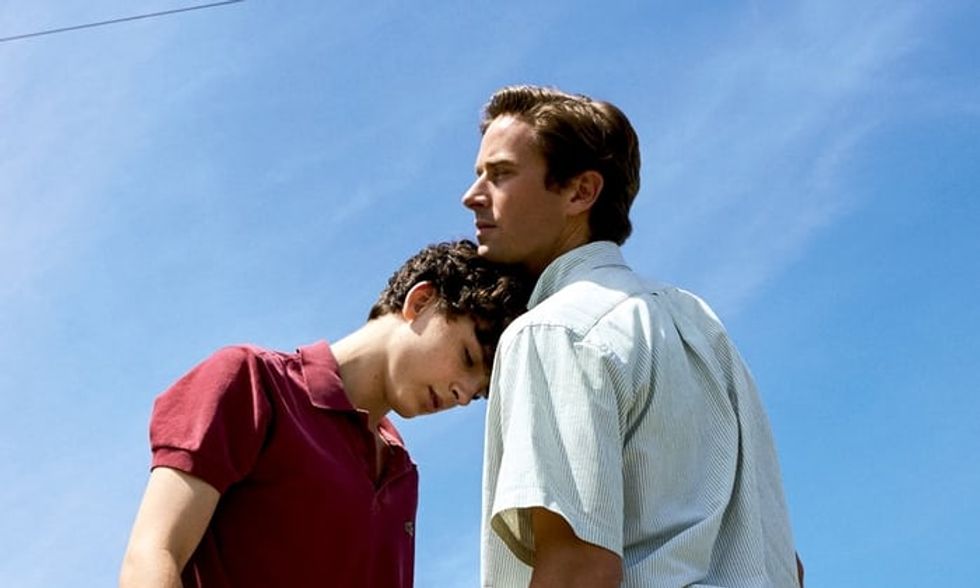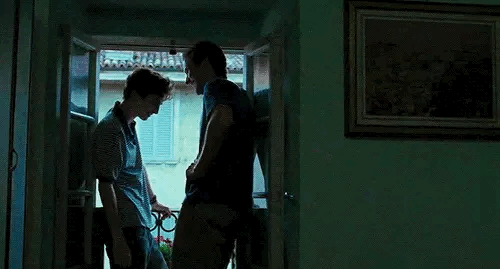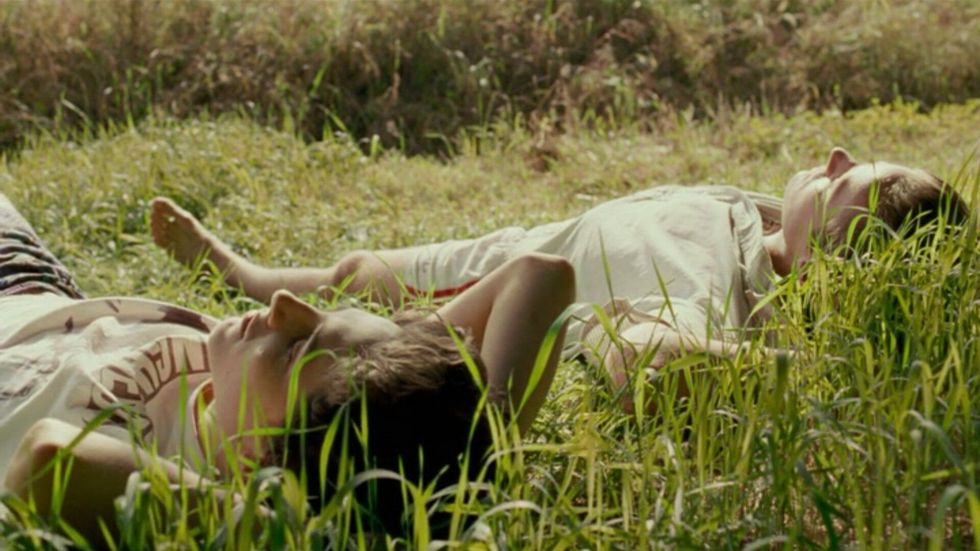"Call Me By Your Name" is a film directed by Luca Guadagnino, released in 2018, starring Timothee Chalamet and Armie Hammer. During the summer of 1983 in Northern Italy, an adolescent boy undergoes a coming of age, and we are all privy to the sentimental and adroitly tender devastation that his summer romance entails. Yet the film is so much more.
In conjunction with the precocious and nuanced acting displayed by the breakout star Timothee Chalamet and the incredible writing by James Ivory adapted from André Aciman's novel, this film offers a complete immersion of affecting mise-en-scene portraying heady and ornate sensations felt to the core.
The cinematography, by Sayombhu Mukdeeprom, utilizes a 35mm film camera and a romantic location that is seemingly palpable and aromatic. The film score intensely and affectionately compliments the visual narrative by nonverbally commenting on the underscored emotions and thoughts from our main characters, most of which are fleeting and interpretive. The connotative value of the film bursts with life, sparkling with desperate longing, and invigorates the work in total.
The elusive nature of the film balances the profound and deep displays of emotion present in all the right places. Boyhood has never before been so bluntly exposed and revealed, ripped open and left bleeding in heart-wrenching scenes. It is pregnant, weighty joy tainted with an implication ominous loss.
Italian summer is warm and soothing. It smells of peaches and long green grass. It sounds like electrifying and colorful 80s dance parties on ancient cobblestone streets and lapping waves from slow-moving rivers shaded by apricot trees. Each sun-drenched frame furthers the soothing and enveloping narrative until you find yourself open and defenseless. The film lures the audience into a trusting state, it guides us to love and feel the way Elio desires to: confidently, fully and without hesitation.
The themes are clever and pinch the viewer's attention away from the transcendent and comforting beauty. We are poignantly reminded of the meaning of selfhood, love, queerness and its place in our world. It's simply there, not overbearing or explicit. A sly and secluded power in itself, it is able to stand alone. It's a coming of age and an understanding of one's self rather than a coming out.
Although the foreign film surrounding a gay romance may appear, on the surface, unrelatable and alien to some viewers, the semblance of commonality lies within the relatability of emotion and experience. Everyone seeks a love as engulfing and pure as Elio and Oliver. Everyone shields themselves from the raw and shattering emotions of loss and devastation. The proposal that remains is: “Is it better to speak or to stay silent?”
This all is contextualized by a scholarly lens. The film opens with photographs of sensual and hedonistic statues, uncovered by archeologists. One of the main characters visits Italy to finish a thesis to receive a doctorate degree. During one scene we even attend an archeological dig and watch the characters discover the hidden ruins of a mysteriously splendid era. In the background, classical music shades the tone. Elio masterfully produces works of art on the piano for friends and family.
The scholastic undertones and constant cultural references urge us to traverse a slippery past and history, that seems so bold and awe-striking, in order to illuminate the nuanced intricacies of everyday emotions. The past, artistic and wise, comments on our present, fraught with dubious conflict and confusion.
For those like me who initially missed the philosophical references, seemingly overshadowed by an overstimulation of so much else, here's a summary. Plato's Symposium proposes true love and true friendship consist of a balance. One partner compliments the other and they bring out the best in one another.
The most explicit reference to this idea in the film occurs in a quiet and endearing moment with Elio and his family. The mother translates a 16th-century romantic tale of a knight and princess. Stumbling upon the perplexing and ambiguous translation of "Freundschaft" a German word best understood as a summary of Plato's theories of love, she laughs, understanding the ironic futility of translation.
This too strikes a thematic chord. Interpret the film and translate it as you like. For everyone, there remains some desirable element. The variegated work overflows with an inundation of enigmatic emotional connotation balanced by an axiomatic and striking visual and auditory narrative.
There is something for everyone here and its worth the watch, even a second viewing...and a third and a fourth. In fact, just buy the DVD and save money at the movies. This may be my favorite film ever.
Here's a Spotify playlist of the film score.



























